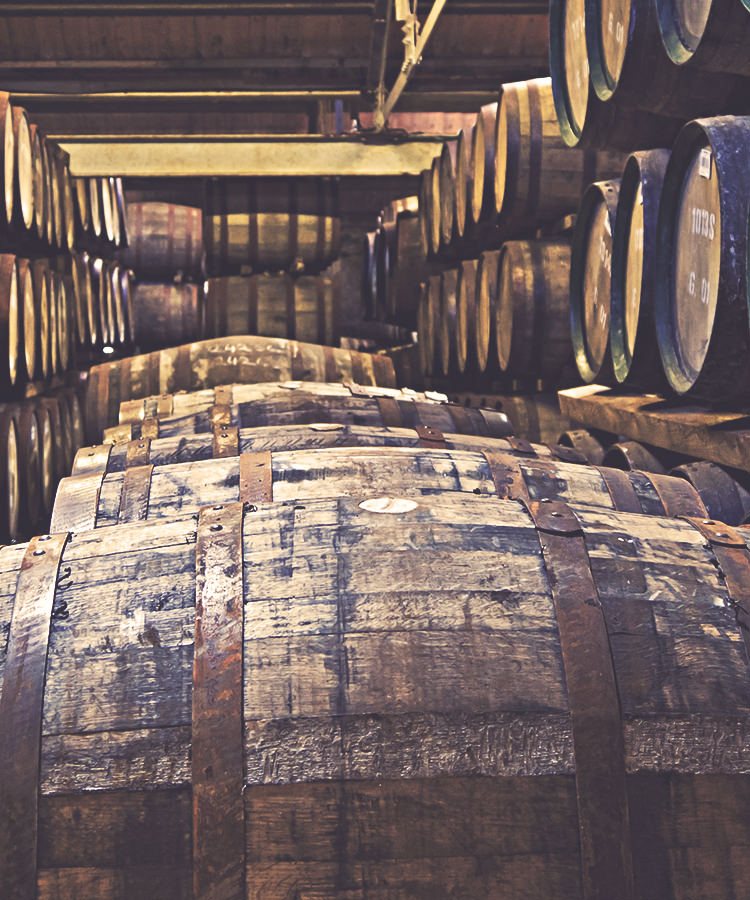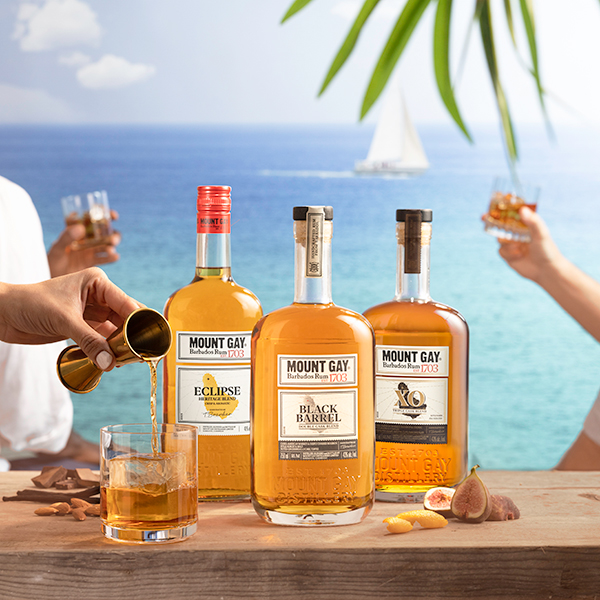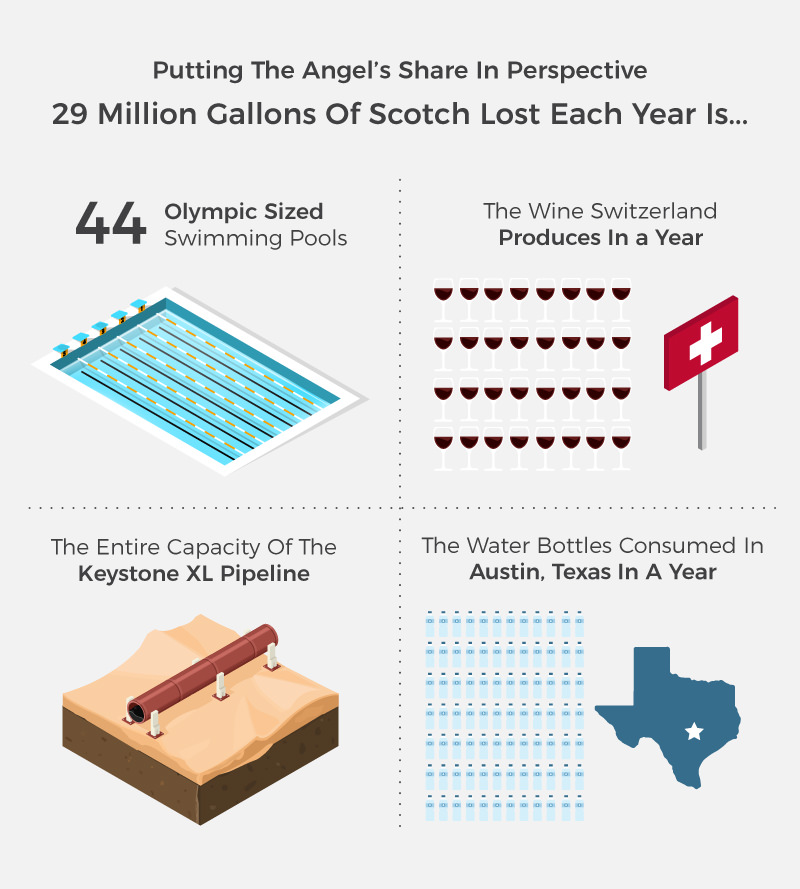Any drop of wasted Scotch is a tear-sized tragedy. But every year, there’s a certain percentage of Scotch that no one can stop from evaporating out of the barrel, no matter how well the barrel is produced and sealed. That percentage is called the “angel’s share.”
The angel’s share clocks in at around two percent of the total liquid in the barrel — a staggering amount of lost Scotch. But distillers didn’t always understand the process whereby their Scotch was disappearing. In the early days of Scotland’s long whisky-making history, distillers were baffled that there was less whisky in a finished barrel than they had initially put in. The only way they could explain the phenomenon was that angels took a portion of the delicious whisky out of the casks for themselves as a sort of tax, hence the term “angel’s share.” The longer the whisky was aged, the myth went, the more the angels taxed.
Now there are more barrels of Scotch whisky being made than ever before — approximately 22 million casks in all of Scotland, Ewan Gunn, the global brand ambassador for Johnnie Walker, tells VinePair. Each cask is filled with 250 liters of Scotch, or around 66 gallons. By those numbers, around 440,000 whole barrels of whisky — 29 million gallons — evaporate out of Scotland’s precious barrels every single year.
That’s 44 Olympic swimming pools worth of Scotch. The same amount of Scotch evaporates every year as there are water bottles consumed in the city of Austin, Texas. The same number of gallons are lost as the total number of gallons of wine produced by Switzerland. Enough Scotch evaporates to fill the entire capacity of the Keystone Pipeline.
No matter how you crunch the numbers, it’s a sobering amount of Scotch lost to evaporation, plus a lot of drunk angels.


